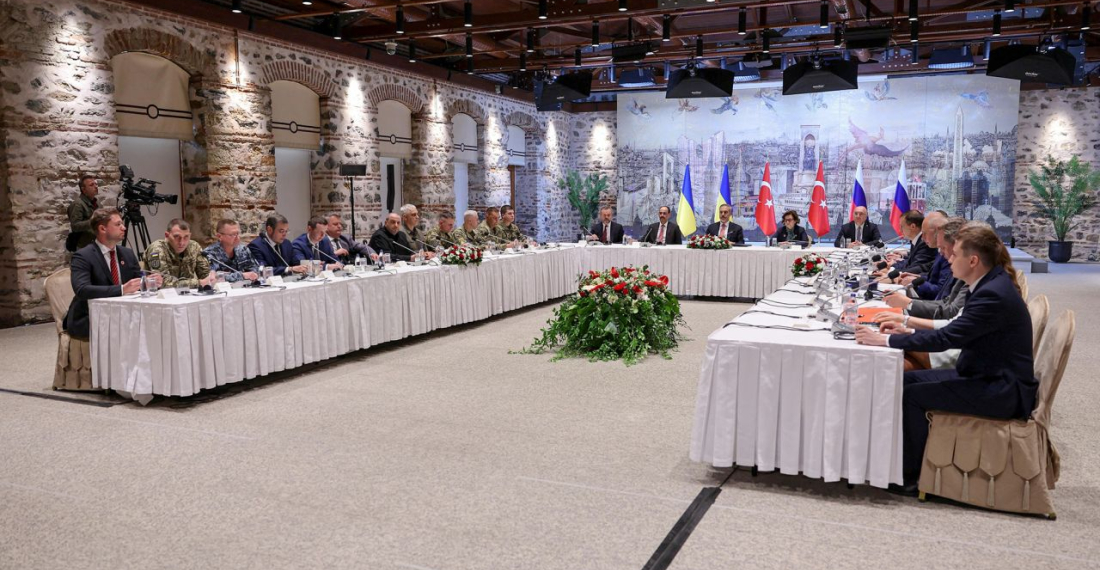Russia and Ukraine have agreed to a large-scale prisoner exchange but failed to reach a breakthrough during their first direct peace talks since 2022, held in Istanbul without either Vladimir Putin or Volodymyr Zelensky. Sitting down under pressure from the US president, Donald Trump, Ukraine had pushed for a 30-day ceasefire before the talks. Moscow rejected this, appearing to stick to its maximalist demands, including sweeping restrictions on Ukrainian sovereignty.
The only tangible result of the talks, which lasted less than two hours, was that the two sides agreed to exchange 1,000 prisoners of war each, the largest prisoner swap of the conflict.
While the meeting appeared to achieve little toward ending the conflict, it may represent a symbolic win for Putin, who refused to accept the 30-day ceasefire that Ukraine and its European allies had demanded as a prerequisite for talks.
The Russian leader has been engaged in a delicate balancing act with the US president, appearing to support peace talks to stay in Trump’s favour, while pushing for terms that in effect amount to Ukraine’s capitulation. Vladimir Medinsky, the ultra-conservative head of Russia’s delegation, said Moscow was satisfied with the results and was prepared to keep talking to Kyiv.
Both sides said they discussed organising a meeting between Zelenskyy and Putin, who have met only once, in 2019. The stalemate appears to pave the way for a US-Russia summit, after Trump undercut the talks on Thursday by saying that “nothing is going to happen” until he meets Putin personally. On Friday, the US president, who had grown increasingly impatient with the slow pace of negotiations, said he would meet his Russian counterpart “as soon as we can set it up”, raising fears in Kyiv that they could be sidelined while others decide their fate.
Zelenskyy has spent the last few weeks accommodating various US demands to demonstrate his willingness to pursue peace. But Trump’s latest remarks, framing a US-Russia summit as the only path to resolving the conflict, underscored his failure to influence the US president’s thinking.
Expectations were already low for the talks, with US officials playing down hopes and Moscow showing little willingness to compromise.
Russia stuck to its maximalist territorial demands, insisting that Ukraine surrender areas that Moscow does not even control, according to a source in the Ukrainian delegation cited by Reuters on condition of anonymity.
Ukraine’s western allies, alongside Zelenskyy, were quick to denounce Russia’s position. Keir Starmer, who was in Albania for a European summit, said the UK, France, Germany and Poland had agreed that the Russian position in peace talks was “unacceptable” and had discussed the matter with Trump. A photograph showed the country’s leaders, alongside Zelenskyy, on the phone to Trump after the failed talks.
Starmer said: “We just had a meeting with President Zelenskyy and then a phone call with President Trump to discuss the developments in the negotiations today. And the Russian position is clearly unacceptable, and not for the first time. So as a result of that meeting with President Zelenskyy and that call with President Trump we are now closely aligning our responses and will continue to do so.”
Zelenskyy renewed his calls for sanctions on Moscow if it failed to agree to a ceasefire. “Our position, if the Russians reject a full and unconditional ceasefire and an end to killings, tough sanctions must follow,” Zelenskyy said on X. “Pressure on Russia must be maintained until Russia is ready to end the war.”
On the other hand, Medinsky, who led the Russian delegation in Turkey, repeatedly questioned Ukraine’s right to exist as an independent nation. During the meeting, he reportedly invoked Tsar Peter I’s 21-year war against Sweden as a warning to Ukraine, suggesting Moscow would outlast it in a prolonged conflict and urging Kyiv to settle on Russia’s terms.






